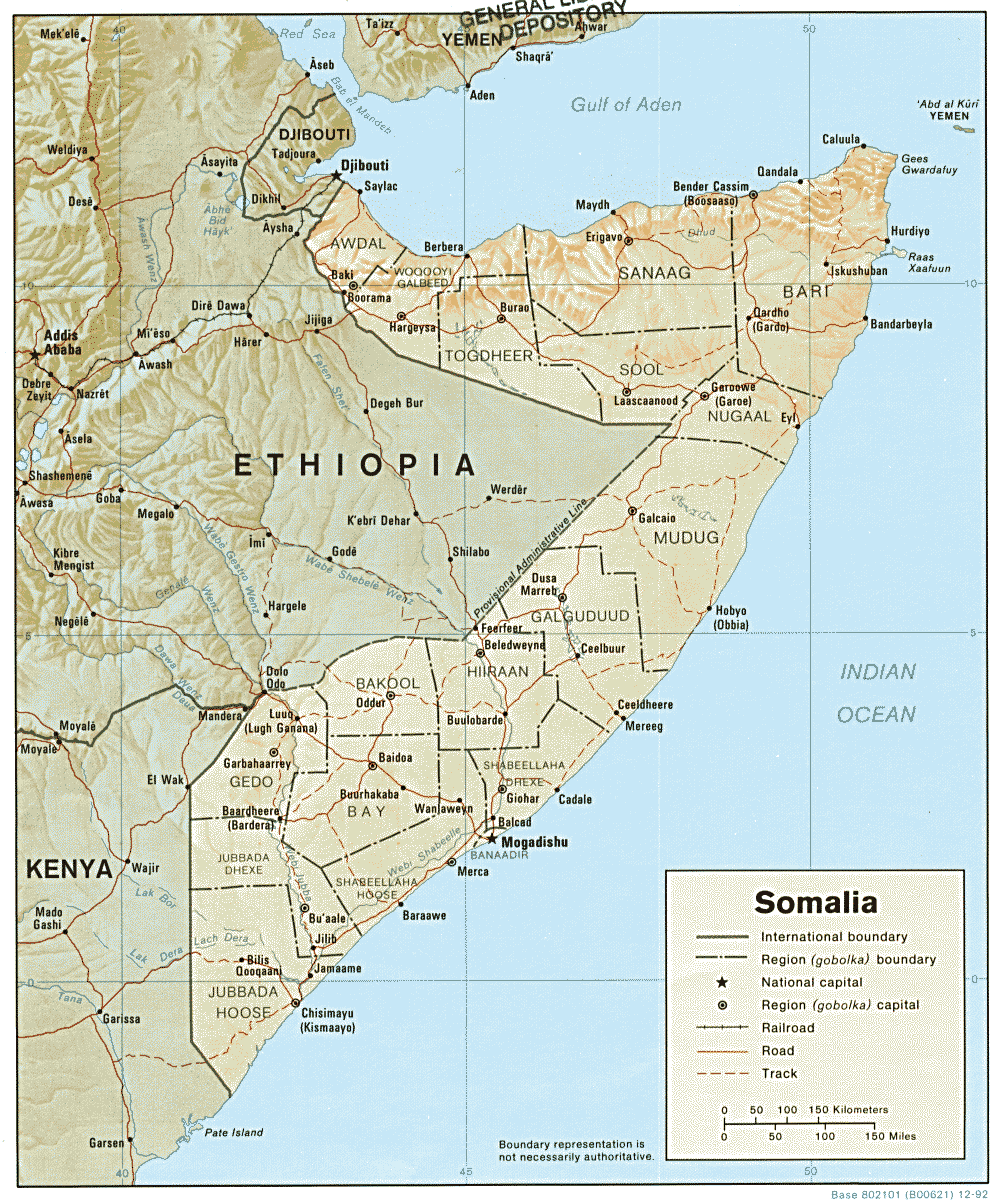
At The New York Times Naruddin Farah, a Somalian writer who lives in Cape Town, provides some insight into the situation in Somalia from the vantage point as an insider-outsider who was tapped as a short term emissary between his native country's two main warring factions. He is not optimistic that peace will take hold:
. . . [I]n the end, the only way out of the current impasse is to resume dialogue between the two principal parties to the conflict. I now know from personal experience how difficult this is. President Yusuf has said that the Islamists' claim to represent a religious constituency does not sit well with his administration.
At the same time, the exiled Islamists are endorsing or openly engaging in violence. Assassinations of political figures, exploding roadside bombs in which peacekeepers or innocent bystanders lose their lives: these must stop.
Both sides must give. Most Somalis believe that the Islamists deserve a place at the table; they have been disempowered through invasion by an occupying force, which must withdraw, the sooner the better.
Genuine negotiations will not be easy. I found this out the hard way. But Somalis must consider the alternative: the violence will continue and the rest of the world will continue to use land as a playground for intervention.
While the world's attention is so often focused on the conflicts in the Middle East, one of the next great testing grounds of radical Islam versus both its moderate counterpart and the non-Muslim world will play out in the Horn of Africa with Somalia at the epicenter. It would behoove the West to pay far more attention to this crisis.
